This post may contain affiliate links. We may receive a small commission, at no cost to you, if you make a purchase. Read Disclosure.
Africa is a continent that’s famous for its wildlife and safari experiences, remote villages, tribes and miles and miles of untamed, unspoiled natural beauty.
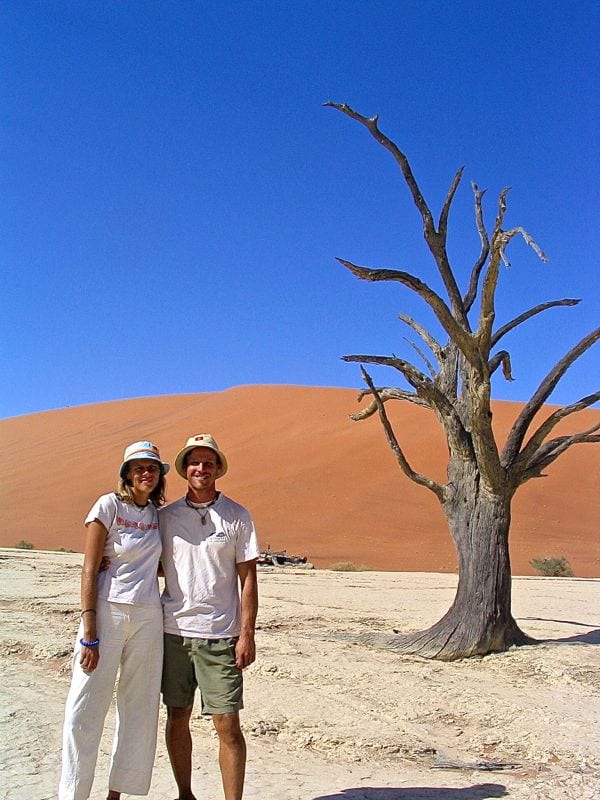
Those who travel to Africa will leave in a sense of awe. It’s not only a place where you can experience wildlife encounters up close, but a place where you can learn interact with a culture so diverse, and so different, from anywhere else.
Most people expect Africa to be a cheap continent to travel to, because it’s famously underdeveloped, but this is not the case. Safaris, gorilla treks, Masai Warrior experiences etc, all come at a high price tag – and you’d be surprised by how much the bucket list experiences can eat into your budget.
Which is why we prepared this guide on the cost of travel in Africa on a budget, so you can save your hard earned cash to spend on those bucket list experiences by knowing how to save on other items.
Can I Go To Africa On A Budget?
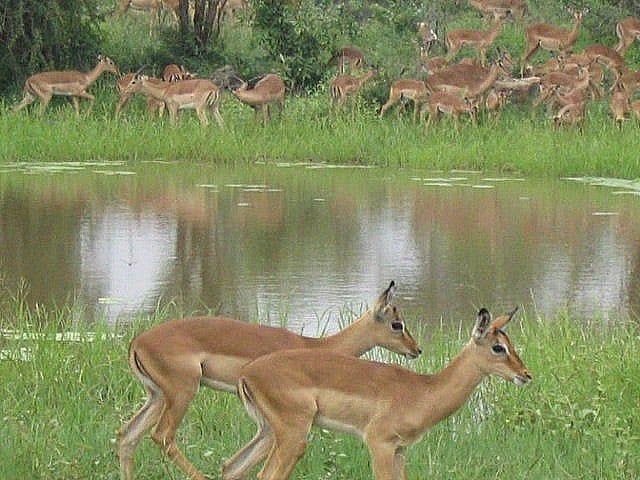
Craig and I backpacked from Kenya to South Africa for 5 months, and we are here to tell you it’s absolutely possible to travel Africa on a budget – and when we say budget, we mean a shoestring budget.
Some African countries are more expensive than others, such as South Africa, and so it’s not a case of saying “Africa is cheap”, but there are ways you can travel on a modest budget.
The truth is, Africa can be expensive, but it can also be incredibly cheap if you’re prepared to give up some luxuries.
The cost of day-to-day living, transport, and accommodation on the whole is usually far less than Europe or America, but not quite as cheap as Asia (from our experience). But we would still class most of Africa as a budget destination.
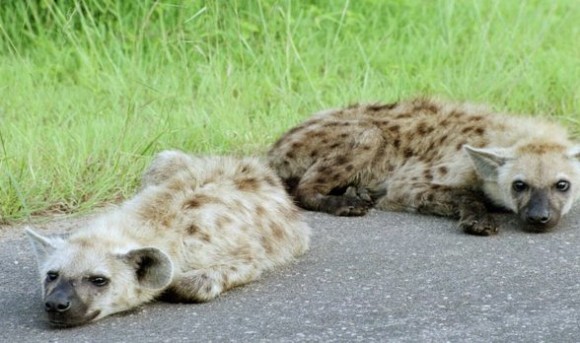
What gets expensive are the cost of safaris, game viewing, and other adventure activities.
You must travel to Africa with a plan of exactly what parks you want to visit, what activities you want to do, and what your daily budget should be, in order to save money for those big ticket items.
You can blow your budget really quickly, so careful decisions must be made. You will have to give up luxury in some areas in order to be able to do more of the things Africa is famous for.
We spent approximately $7,000 over 5 months. This included the very expensive gorilla trekking in Uganda, white water rafting the Nile, and safaris in the Masai Mara, Kruger National Park, Addo Elephant Park, and Etosha National Park.
So if you work this out, we spent around $50 a day for 2 people, including everything. Today, a budget of $80-$100 per day may be more realistic.
Cheapest Countries To Travel To in Africa
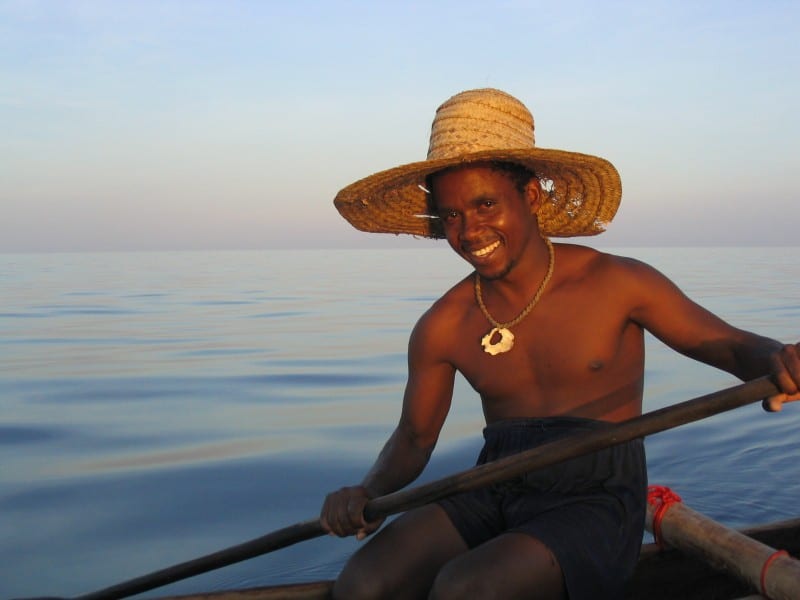
North African countries such as Egypt and Morocco tend to have higher prices than countries in East Africa. Prices in North Africa are comparable to places in Southeastern Europe/East Asia, such as Greece or Turkey.
We haven’t been to West or Central Africa, so cannot comment on those countries.
Uganda and Rwanda are cheap countries to visit, but tourists end up spending a lot of money because most people visit to see the gorillas, and Gorilla Trek experiences are not cheap.
The same goes for Tanzania, where the Serengeti lies. Safari trips to the Serengeti are expensive, as are trekking experiences up Mount Kilimanjaro, but exploring the rest of the country can be quite affordable.
Kenya is another country that you think will be cheap but isn’t. Most people who visit Kenya are looking for luxury safari experiences, and it historically attracts wealthy travelers, so much of the accommodation and experiences are catered towards travelers with a high price point.
Zambia is comparable to Tanzania in terms of cost, but a really cheap country in Africa to visit is Malawi. If you like beautiful beaches, Mozambique is also somewhere you can travel on a modest $50 per day budget.
South Africa is not as expensive as you would imagine. You can travel South Africa for a budget of around $50 per day, per person, and live quite comfortably.
Cape Town and Johannesburg are quite backpacker friendly, but again, your biggest expense in South African will be game drives.
Cost of Travel in Africa
The following is just a general overview of costs of travel in Africa, so you can work out what budget you should allow yourself.
Accommodation
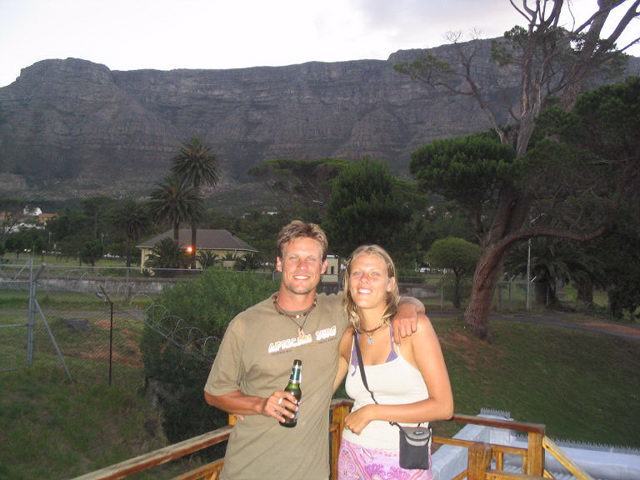
Want to know how we reduced our backpacking Africa costs? We camped almost the whole way.
All you need is a lightweight tent, a sleeping mat, and a sleeping bag/sheet. Our nightly costs ranged from $1 to $5 a night. You can sleep in national parks and safari destinations for around $10 – $15 per night, or you can upgrade to one of their lodges (though remember you still need to pay national park fees and permits).
You can find basic lodges for around $30 per night, or you can find 5* safari lodges for $300 per night. It really depends on the level of luxury you require from your vacation.
You’ll find most backpackers and hostels have areas set aside for campers, so you still get full use of the backpacker facilities, but at budget prices.
We camped at our favourite backpackers, Mayoka Village in Malawi,on a terraced garden at the edge of Lake Malawi for two weeks for only $1 a night. It is now $8 a night.
The average price of a camp site in a hostel is around $10 a night to camp in most African destinations.
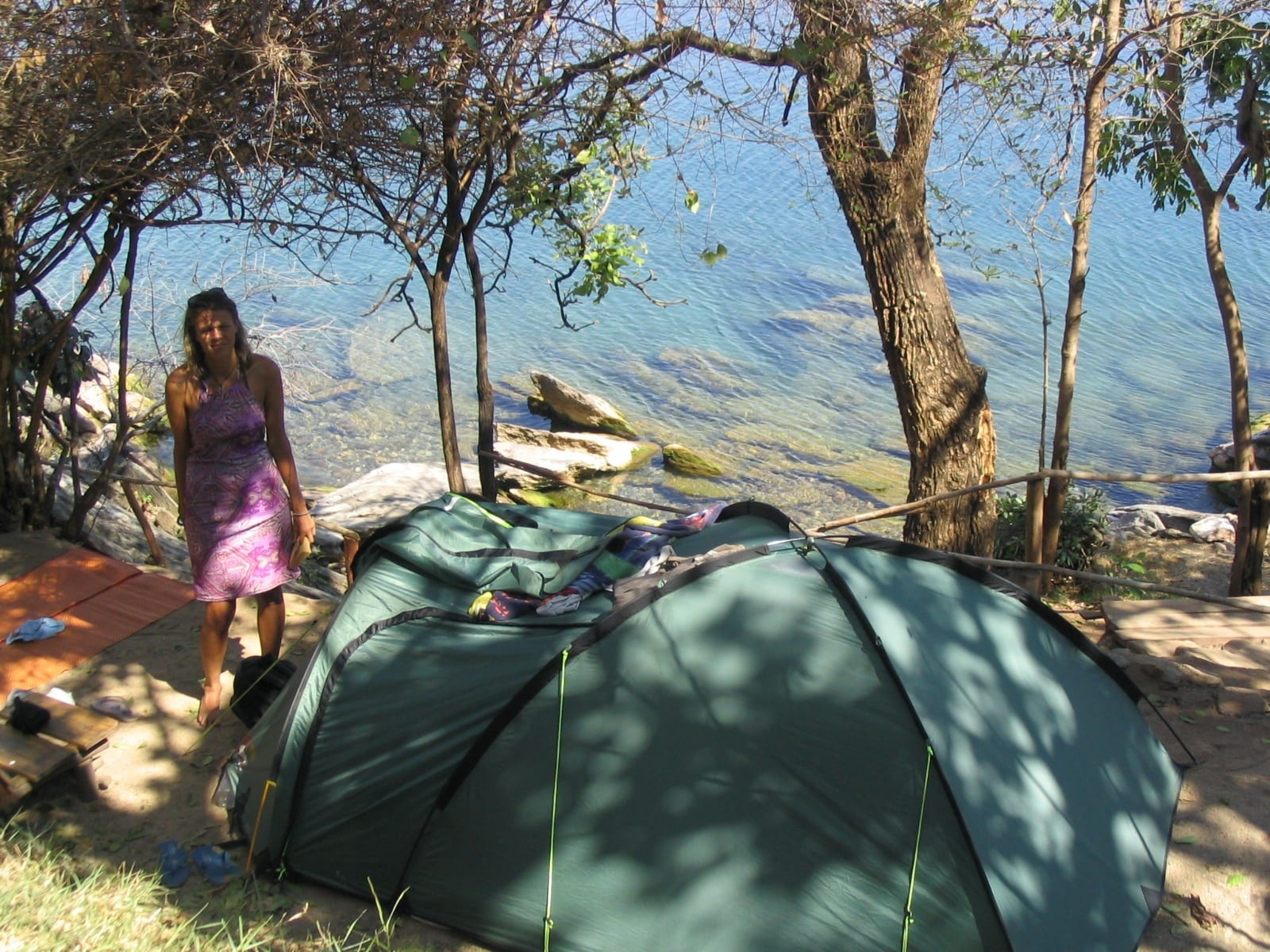
If camping is too low budget for you, then next cheapest option is a hostel.
Hostels in Africa is great for backpackers to stay in. They are clean, the staff are friendly, and there are usually a lot of activities going on – many of which are free – that you can participate in with other backpackers such as quiz nights and communal dinners such as braai (South African BBQ).
The costs of a backpackers hostels tends to increase in the larger cities, and more expensive countries of South Africa and Namibia, but you can still find a dormitory bed for as little as $15 USD and private rooms for around $30 per night.
Prices range from $10 – $20 for a dorm bed in cheaper East African destinations, such as Zambia, Zimbabwe, and Zanzibar in Tanzania. You can expect to pay around $20- $80 for a private room.
Food
Food choices for budget travel in Africa rarely differ from budget food choices backpacking in any country. It will be cheaper if you eat with the locals or cook food yourself.
Most African hostels and backpackers will have kitchen facilities, and markets and supermarkets provide cheap food options.
We carried around two plastic bowls and spoons, a packet of cereal and powdered milk. This was our cheap breakfast every morning.
Camping facilities usually have fire circles, so braais or barbecues are easy to do and cheap.

Venture out of your hostels and into the local towns, for some cheap food in the local restaurants. Africa is a poor continent so you will find their diet is very staple and bland.
Everyday in Malawi we would walk into town for some rice with a basic curry tomato sauce. It was less than a $1 and quite tasty.
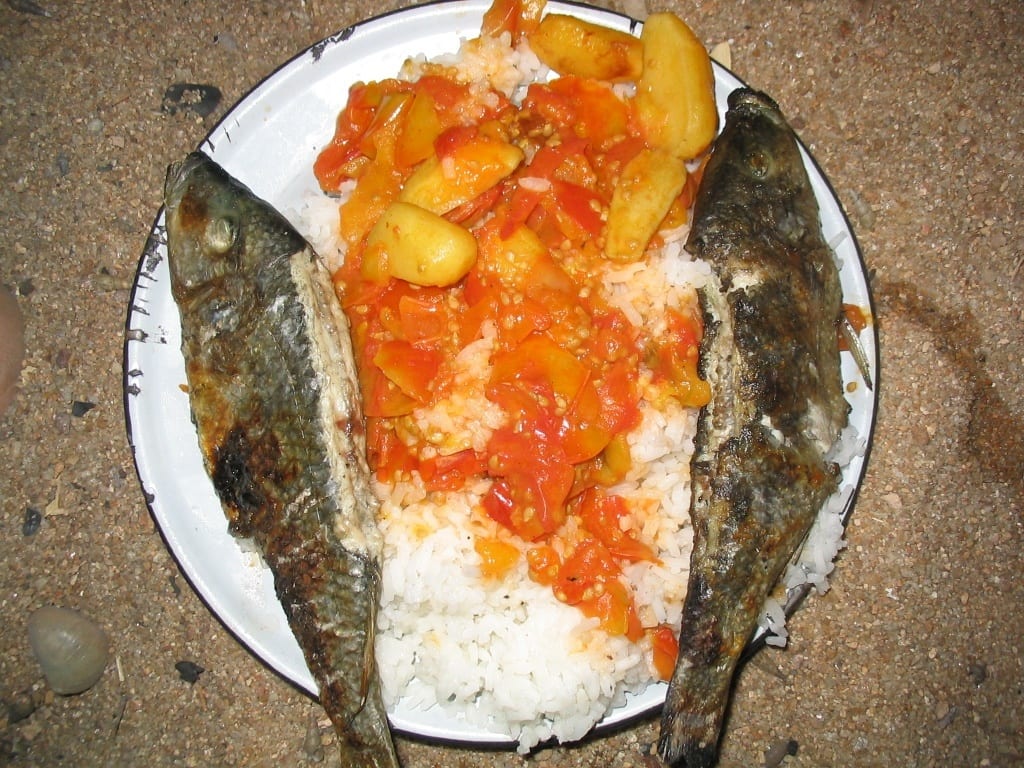
Hostels usually have restaurants where you can purchase food. It will be a little more expensive, but can be a nice break. Look out for drink specials as well.
Be warned that if you order fries you could be waiting hours for it, particularly in Uganda where they don’t have the proper cooking facilities for it.
If you can, camp under a mango tree, so they can drop on your tent all day for free food–and delicious too.
We also carried a water filter around with us to reduce the cost of bottled water. Africa is hot, you drink a lot, and this can really add up to dent your budget.
If you do eat out, you can expect to pay around $8 – $10 per meal, per person.
Transport
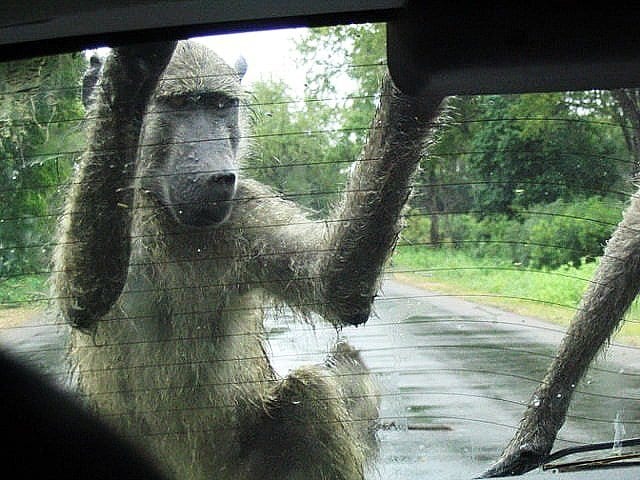
Travel in Africa is really cheap. But it comes at a different sort of price – it’s uncomfortable and sometimes dangerous.
Put it this way, you’ll get to know your heart and breath a lot better, and maybe have more conversations with those guiding forces from ethereal lands.
In each town, local min-vans will zip you to wherever you want to go from anywhere from 20cents to a couple of bucks.
Mini-vans, otherwise known as matutus, or pick up trucks can also take you on longer distances between towns for a couple of bucks more.
Buses will cost anywhere from $3-$32 depending on distances and the countries you visit.
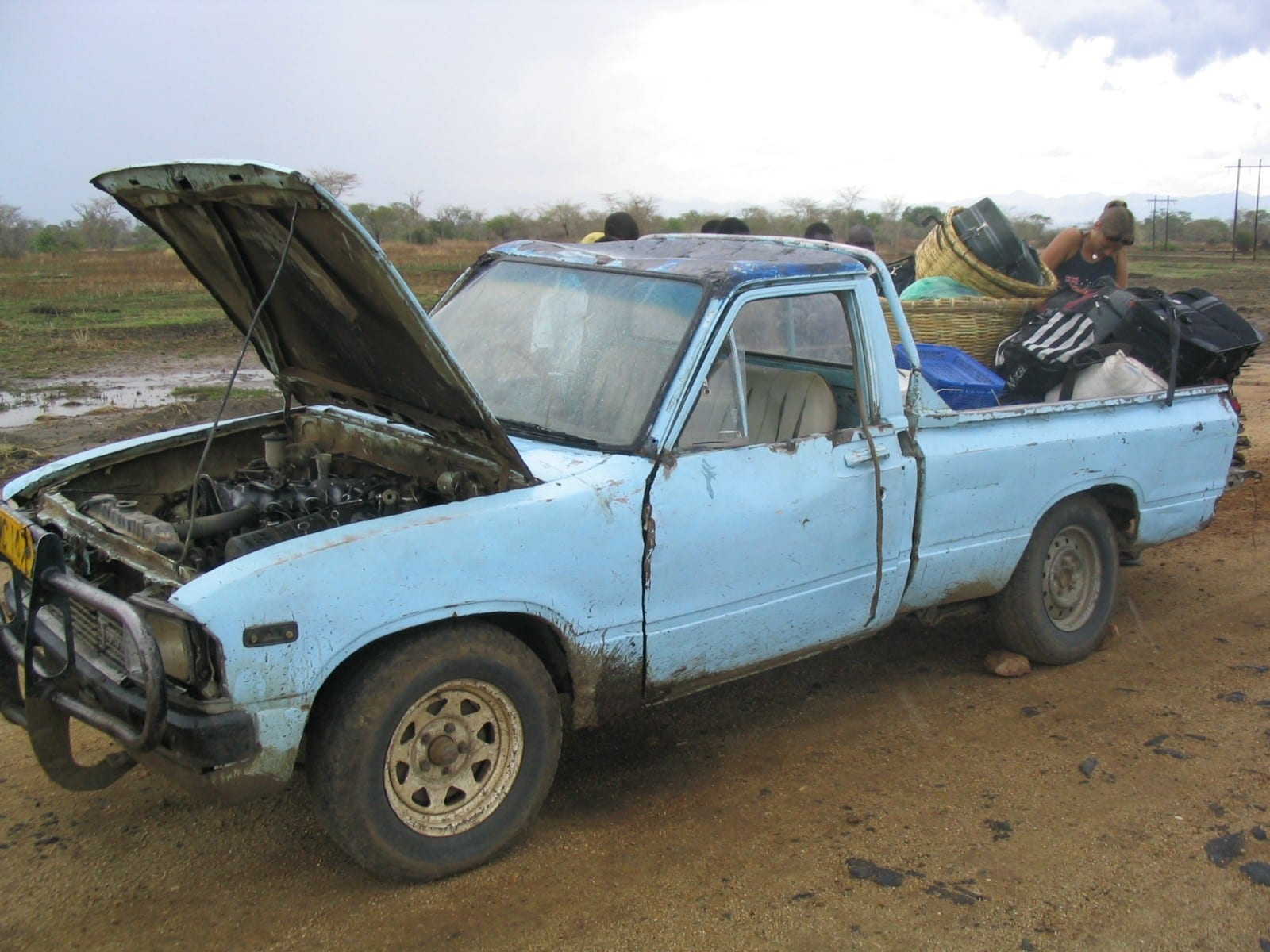
Train journeys although infrequent are more comfortable and safer. A second or first class sleeper is the best way to travel and fares are usually around $20-$30.
In South Africa, taking the on-off Baz bus, made especially for travellers is a comfortable and luxurious form of travel (after 4 months of pick ups it’s heaven).
Tickets start from around $220 USD and are quite flexible in their itineraries for taking you to the main backpacker areas.
Listen to one of our craziest pick up rides in Africa, in this podcast on Uganda Travel.
African Safari Costs
You are going to need careful planning for your safaris. They can get really expensive and you have to be selective about which parks you go to.
We wanted to go to everyone, but it is just not possible.
Do your research and read the reviews from people who visited recently. You really only need 2-3 days max in each of the parks. It can get very tiring looking for the animals, and after your 50th zebra, the novelty wears off.
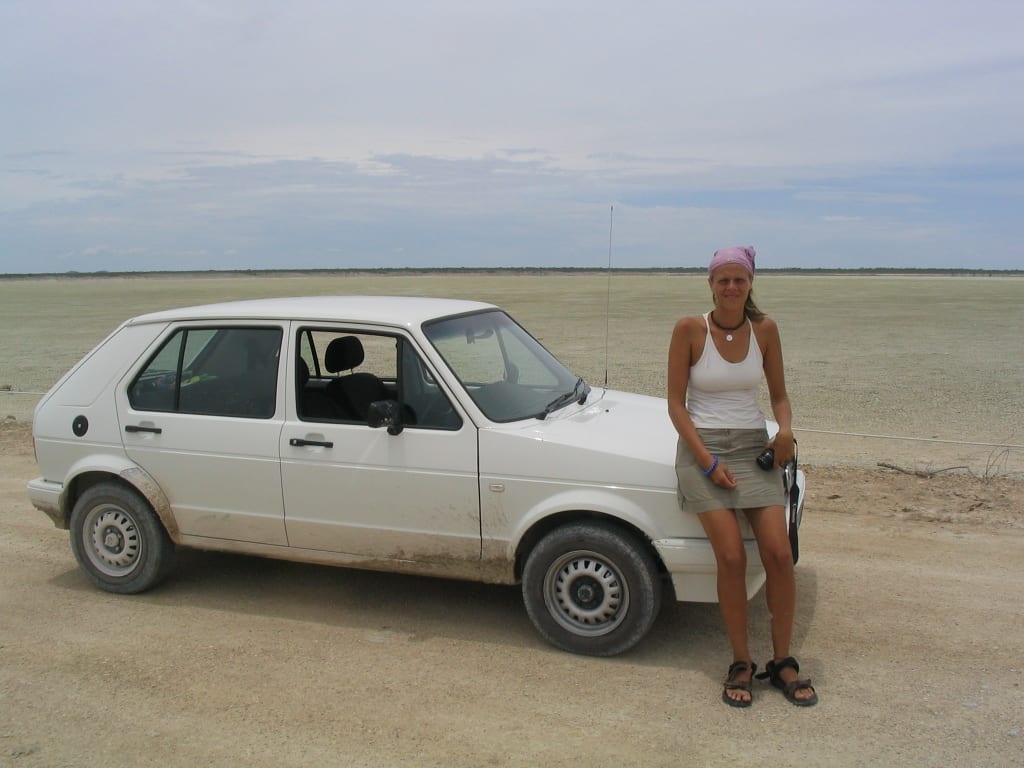
You have to weigh up the costs of doing a safari with your own hire car, or on a guided tour.
It is usually best to book the tour when you arrive in the nearest town to the park. We only went on a guided tour for the Masai Mara, all the rest we hired cars for and drove ourselves.
3 day camping budget safari tours of the Masai go for about $450 pp all inclusive. This would be a better option for a Kenya safari, as car hire is not as easy as it is in South Africa and Namibia.
Costs for guided safaris in South Africa for the game reserves are a lot more. However, car hire is cheaper. You can hire cars for as little as $30 per day in South Africa, in other countries from about $75 – $100 a day.
When you work out the costs of car hire (watch for extra mileage charges), fuel, accommodation and food, it usually works out to be cheaper, more practical and flexible to do it yourself.
However, you may want to save money and book a tour, for the reasons we mention in our guide on the best African Game Reserves.
To reduce the cost of the expensive car hire, we camped at the designated campsites and cooked our own meals around the campfire.
We do recommend allowing for extra costs such as guided night drive or walking safari. Limit this to just once, in one park.
Allow for around $300 – $500 for a 3-day do-it-yourself safari, or for a 3 day tour.
The more people you can travel with the less that will work out individually. If you are on your own, then a tour might just be easier.
Consider hiring a car for a longer period of time and fitting in other activities as well. We hired a car for a week to drive along the beautiful Garden Route in South Africa, taking in Addo Elephant park at the same time.
Gorilla Trekking
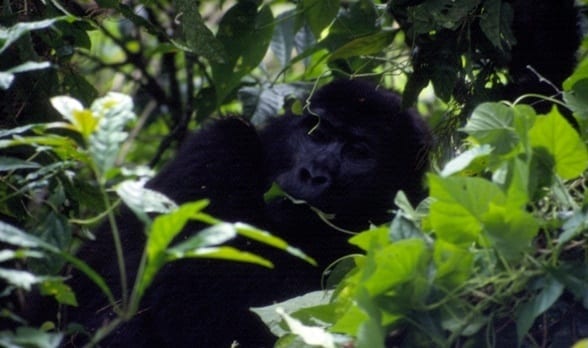
Didn’t Craig and I get off lightly for this one? Right time, right place. It cost us $250 each for the licence to trek for gorillas in Uganda and then it cost about another $20 each to get there (which is a lot for African travel).
Now, you can expect just the permit to cost $700, and then you need to factor in car rental, fuel, accommodation and other expenses. Just going the Gorilla trekking experience for a day can set you back close to $1000.
But, worth it to see gorillas in the wild?
You can take comfort in the fact that a lot of this money goes to gorilla conservation. It is a once in a lifetime opportunity.
Plan for it and make room for it in your budget. Camping is looking more attractive now, right?
Vaccinations
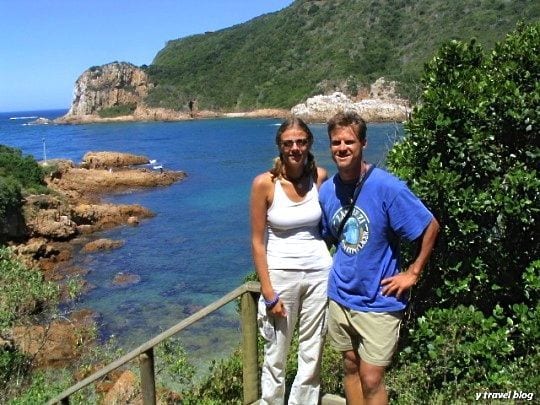
One thing people forget to budget for is vaccinations. You may also need to pack malaria medications, depending on where in Africa you are going to.
You may want to speak to your local doctor about what vaccines you need before you visit, as this varies depending on which countries you go to and for how long you stay there.
Some countries will need Typhoid vaccines, and others may require Yellow Fever vaccines, and some may not need either.
The prices are also different for vaccines in various different countries, so we can’t tell you how much to put aside for this – just know it’s an extra cost to consider. Also, remember to consider any layovers if you are spending a couple of days somewhere before/after your trip.
When Is The Cheapest Time To Visit Africa?
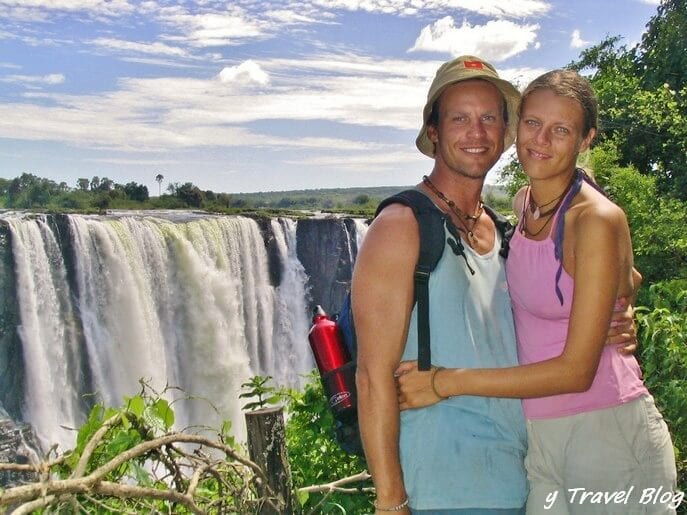
The cheapest time to visit Africa would be in the off season, which would be from September to April.
June and July are considered peak season and is when the prices will be higher.
The shoulder season on either side of the high season, in May and August.
January and February are supposedly the cheapest months to fly to African destinations from the USA, but again, it varies depending on where you are flying from.
Final Thoughts
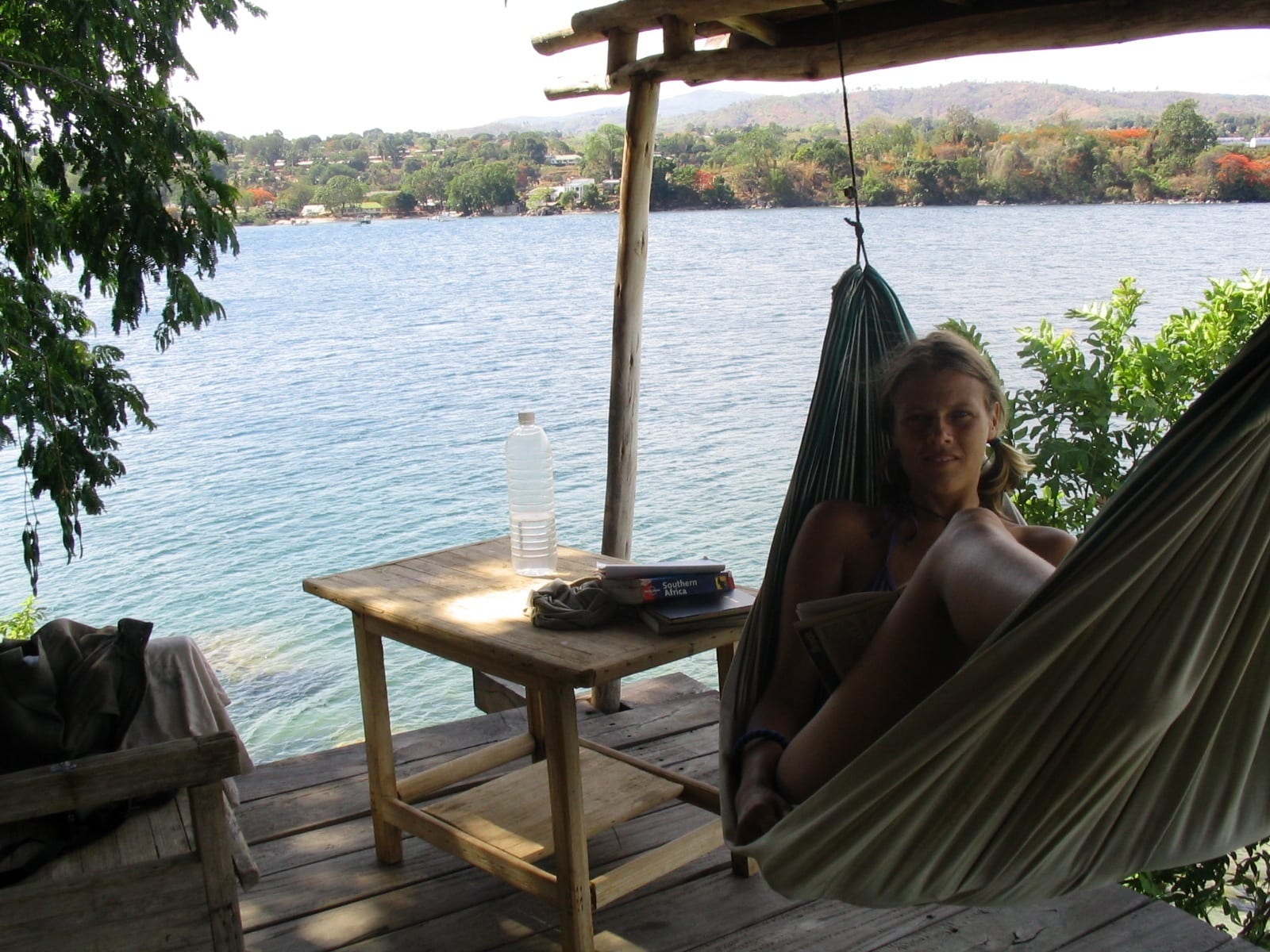
To stretch your money out and make up for the expensive safari days, remember there will be plenty of down days where you are only spending money on accommodation and food.
You can get away with doing this for as little as $10, depending on your choices.
These are some of your best days.
Spend them exploring local villages, visiting markets, hiking mountains, lazing at beaches, and relaxing on the edge of lakes.
We hope this guide gives you an idea on how to budget for Africa and answers the question; how much does is cost to travel to Africa!
More Africa Travel Tips
Need more inspiration for your trip to Africa? Check out these other guides!
[ad_2]
Source link
